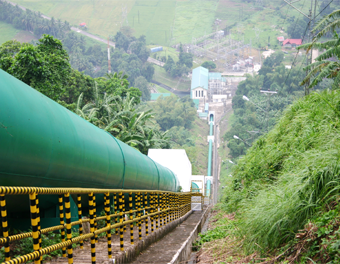The Department of Energy (DOE) has confirmed that the privatization of the Caliraya-Botocan-Kalayaan (CBK) hydroelectric power complex in Laguna will proceed as planned in April this year. This announcement follows the upcoming third round of the Green Energy Auction (GEA-3), set to kick off next month, which is also expected to influence the pricing strategy of the CBK privatization program.
DOE Secretary Raphael Lotilla explained that the agency had delayed the CBK privatization to align it with the auction’s pricing outcomes. While the Power Sector Assets and Liabilities Management Corp. (PSALM) could have privatized the plant without the auction, the Department of Finance (DOF) sought to maximize the plant’s value by coordinating with GEA-3, which includes multiple pumped-storage hydropower projects.
The CBK complex, which consists of three hydroelectric plants with a combined capacity of 796.64 megawatts (MW), is set to transition from its current operator, CBK Power Co. Ltd., after the expiration of its 25-year contract in 2026. Experts predict the privatization could generate between P50 billion and P100 billion.
The significance of GEA-3 for both CBK’s privatization and the wider energy market cannot be overstated. It will set the price for new pumped-storage hydro projects—such as CBK—which could impact future power generation costs. As DOE Undersecretary Rowena Guevara noted, “GEA-3 can dictate the price per kilowatt hour for upcoming pumped storage hydro plants, and CBK is also a pumped-storage hydro.”
GEA-3, with a total target capacity of 4,650 MW, will auction off new projects, including 300 MW of impounding hydroelectric capacity and 100 MW of geothermal capacity, along with substantial pumped-storage hydro capacity across Luzon and Mindanao. This competitive auction is expected to play a key role in shaping the country’s renewable energy landscape, impacting consumers’ energy costs and the viability of future green projects.
As this crucial auction nears, the impact on the pricing and privatization of CBK will be closely watched, especially as it could set a precedent for similar projects across the nation.







